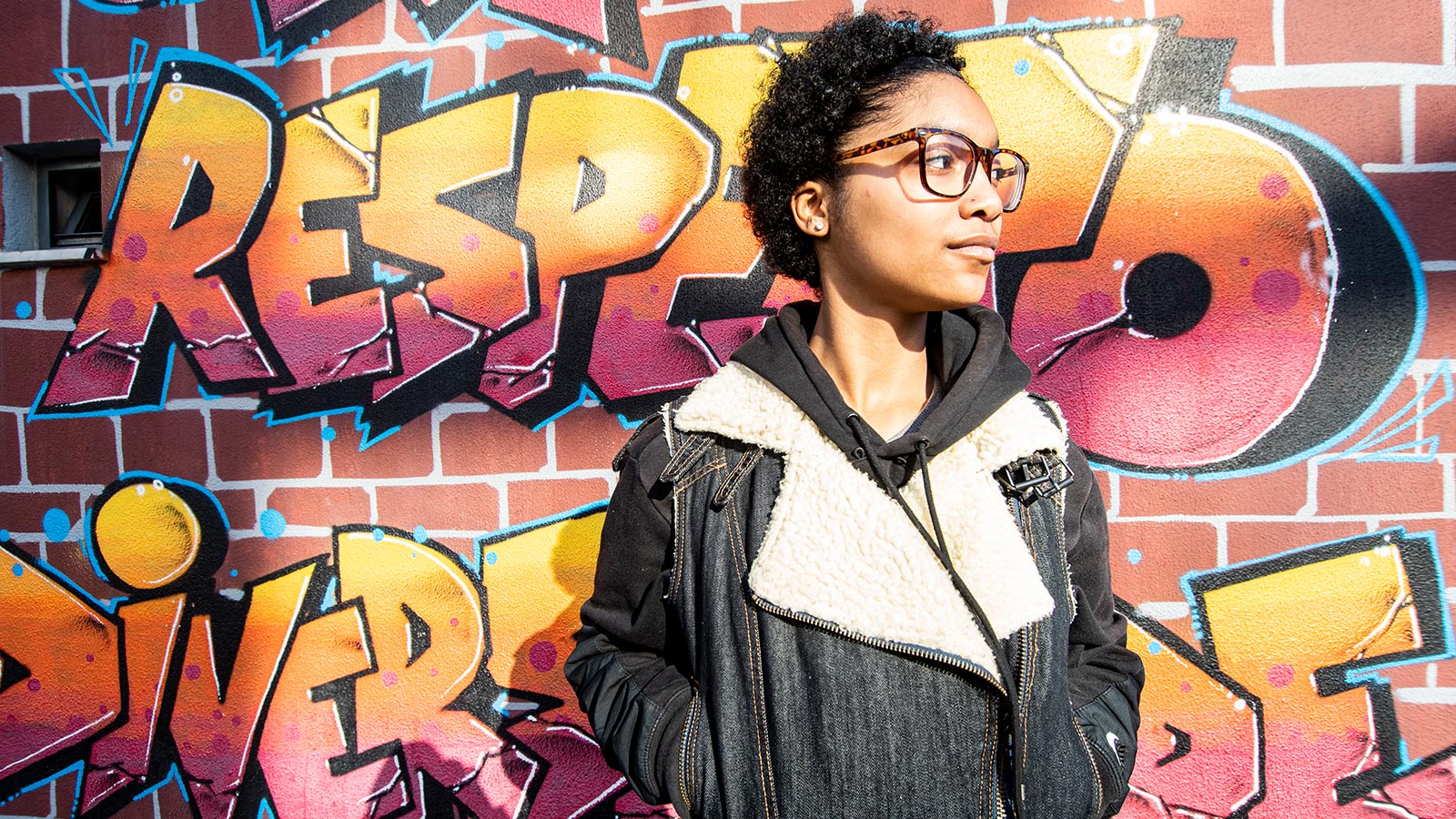“Sometimes it feels like we don’t have a chance to express ourselves”
It wasn’t half past nine when Inês Sousa walked into Passa Sabi. She was on school vacation, but that didn’t stop her getting up early on a cold winter’s morning to put on her best smile and take on the role of “Neighbourhood Correspondent”.
The meeting point was Passa Sabi, the community-based association that, with the support of the Active Citizens Fund, aims to promote media literacy and combat disinformation in Bairro do Rego, Lisbon. The association also wants to show young people that anyone – even those living in social housing areas – can be the subject of news, that there are good stories everywhere that deserve to be told and can be published, that it’s legitimate to have dreams and that it’s not impossible to make them come true. To carry out this venture, Passa Sabi has partnered with the online publication A Mensagem de Lisboa, which will be helping a group of young people from the neighbourhood to identify stories, conduct interviews, prioritise information, identify fake news and eliminate stereotypes and prejudices that make us all more permeable to the populism and polarisation that pose such a threat to democracy.
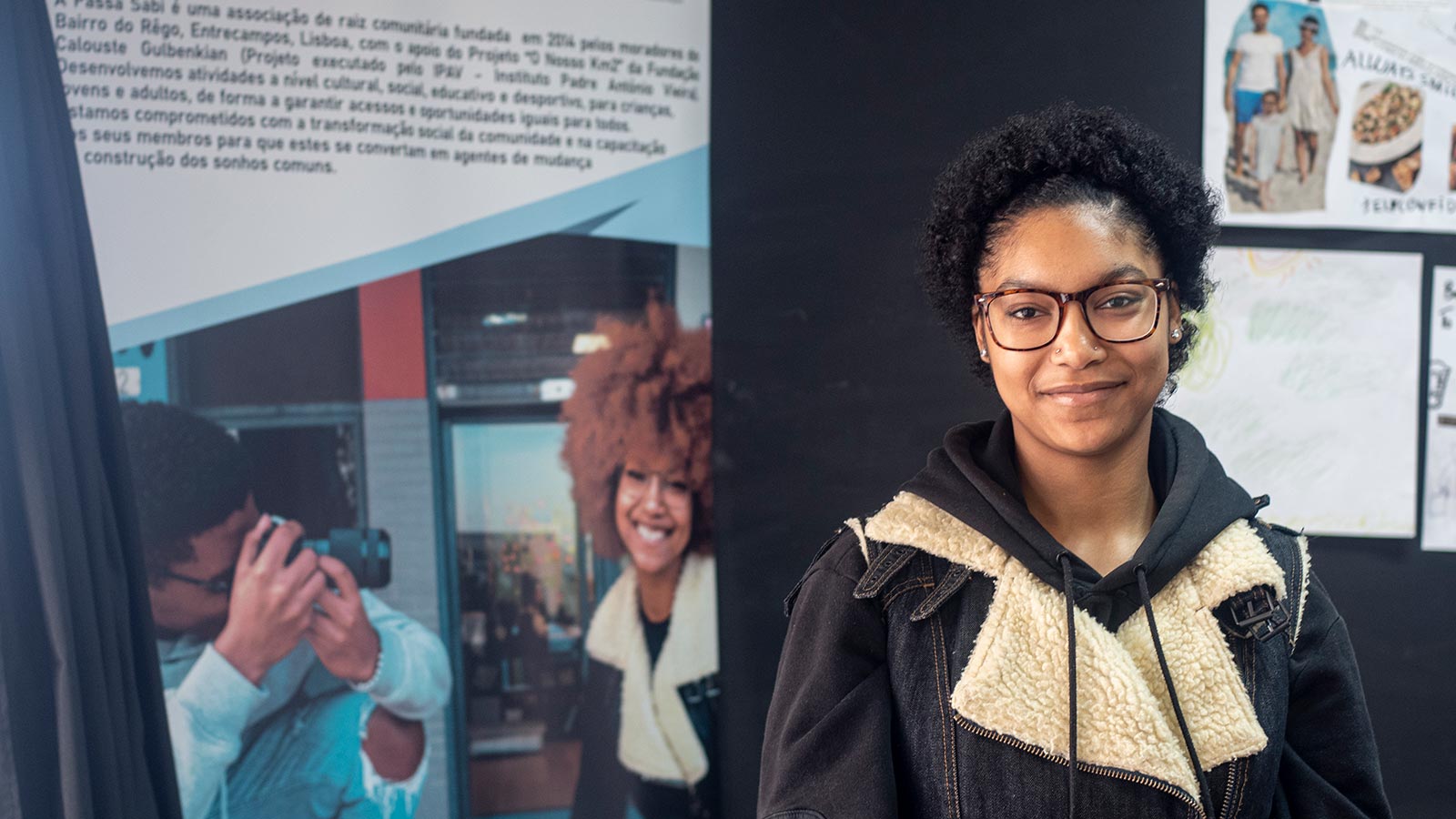
After Inês, then came Rafael, Tiago, and finally Álvaro and Líbia. Rafael and Tiago were going to be interviewed by Inês and Álvaro, respectively the neighbourhood correspondent and the journalist from A Mensagem who was coordinating the project. Líbia would take the photographs that would accompany the work in the pages of A Mensagem.
Inês had already interviewed Bebé, born and raised in Bairro do Rego, who had become a futsal star. From that conversation an article was born and can now be read in A Mensagem de Lisboa: Bebé, o campeão do mundo que driblou a falta de campos no Bairro do Rego e hoje serve cachupa no restaurante da mãe.
The conversation with Rafael and Tiago would turn out be easier. Two young adults from the neighbourhood had been hired by a Spanish social organization for sustainable distribution and social inclusion and were willing to share their story. One of the good things about the project, Inês had said while waiting, was the possibility of “giving a voice to young people in the community. Sometimes it feels like we don’t have the opportunity to express ourselves.” This conversation was headed in that direction.
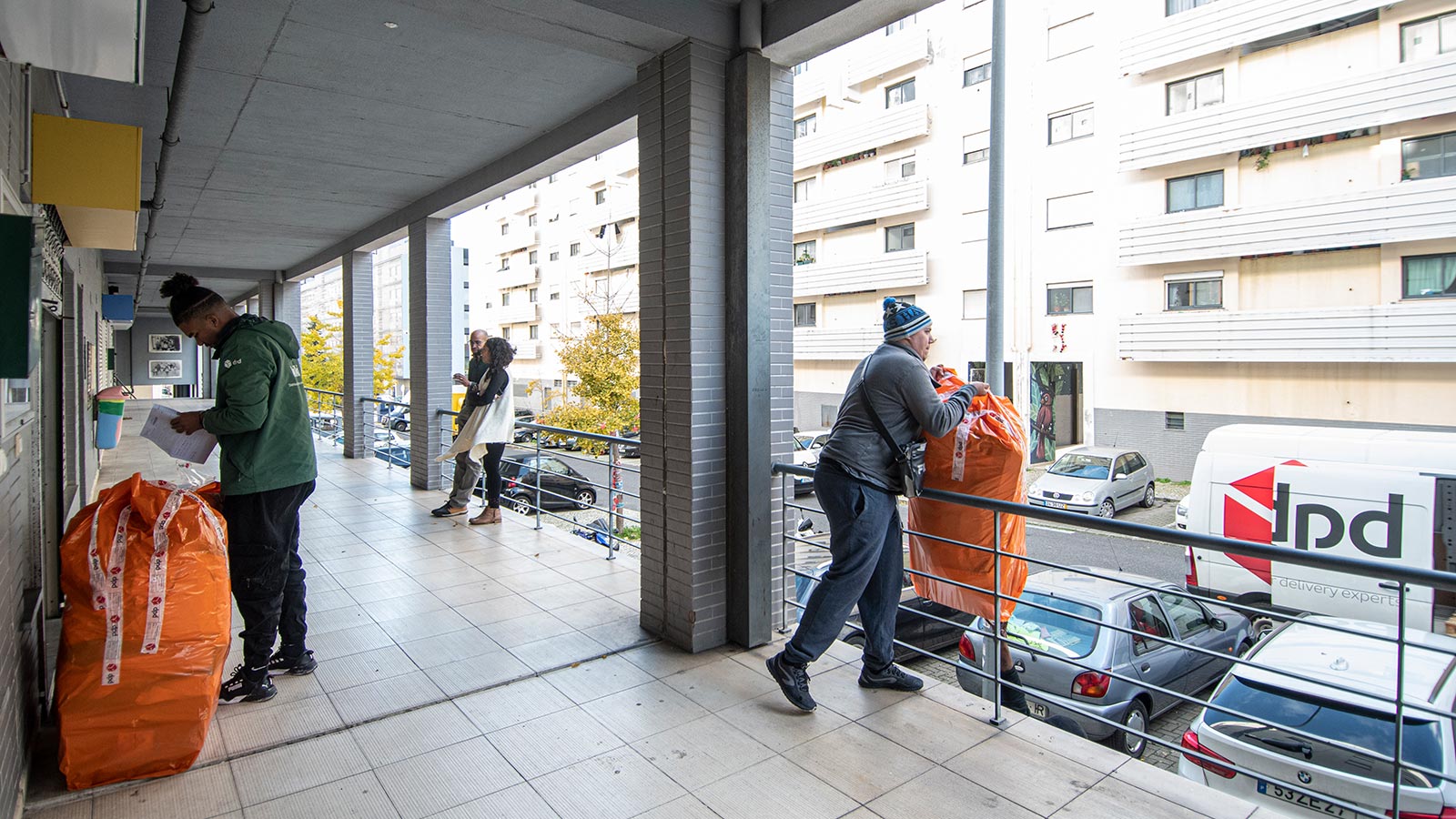
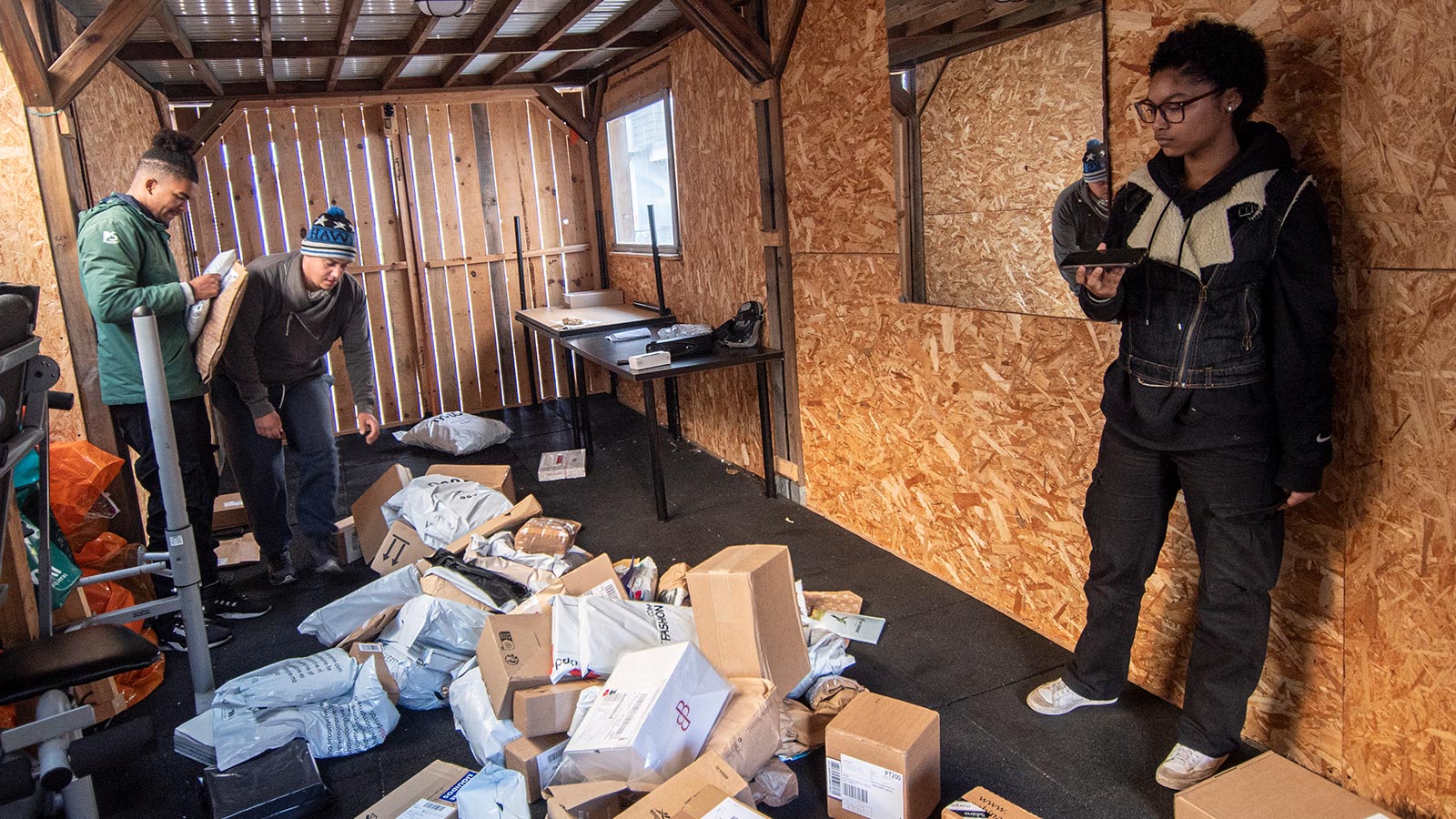
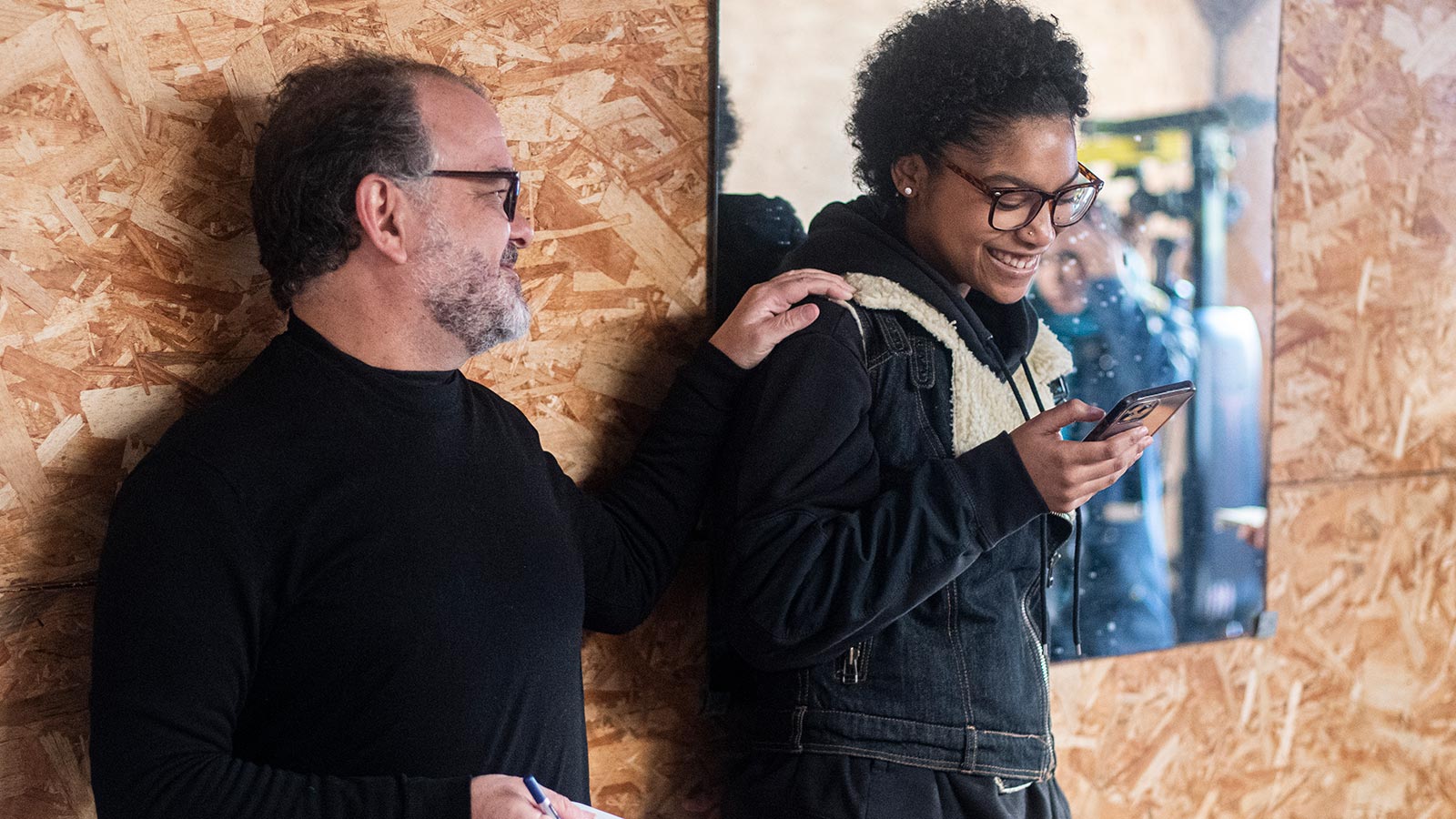
The young correspondent wanted to know if this was the job they imagined themselves doing. Not really, they both replied. Like any kid, they wanted to be football players. “Or a pastry chef,” says Tiago. Rafael still plays – he’s a “false 9” for a club in Amadora – but he doesn’t make a living out of it. The conversation flows. They talk about the recruitment process and continuing to study. There are hardly any young people from Rego going to college. “Mrs. Cristina’s son got in,” says Rafael. Inês was thrilled. ” He got in?!” The university issue “isn’t just about the neighbourhood. It depends on the mindset of each person,” adds Tiago. “Sometimes we see older people, aged 30 or 35, sitting here in the neighbourhood… My mother started working when she was 17 in a fast food restaurant and then went to EGEAC, where she has been for over 20 years.
They talk about what’s hardest about this job and “where they see themselves in five years’ time”. The boys try to dodge the question, but Inês doesn’t shy away: she wants to be in college, finishing a degree as an English teacher. Álvaro seizes the opportunity: “It’s important to have someone in the community who breaks this cycle and goes to college”. He talks about the importance of young people having references, examples to follow and dreams to fulfil. They reminisce about Bebé, who had a wonderful career at Sporting.
The interview turns out to be a simple conversation. But that wasn’t the only thing Inês learnt. An avid consumer of social media, she assures that after taking part in the project she no longer shares news that she doesn’t read from beginning to end, without checking the content of the text, its format and the sources of the news. “I can spot the signs of fake news.”
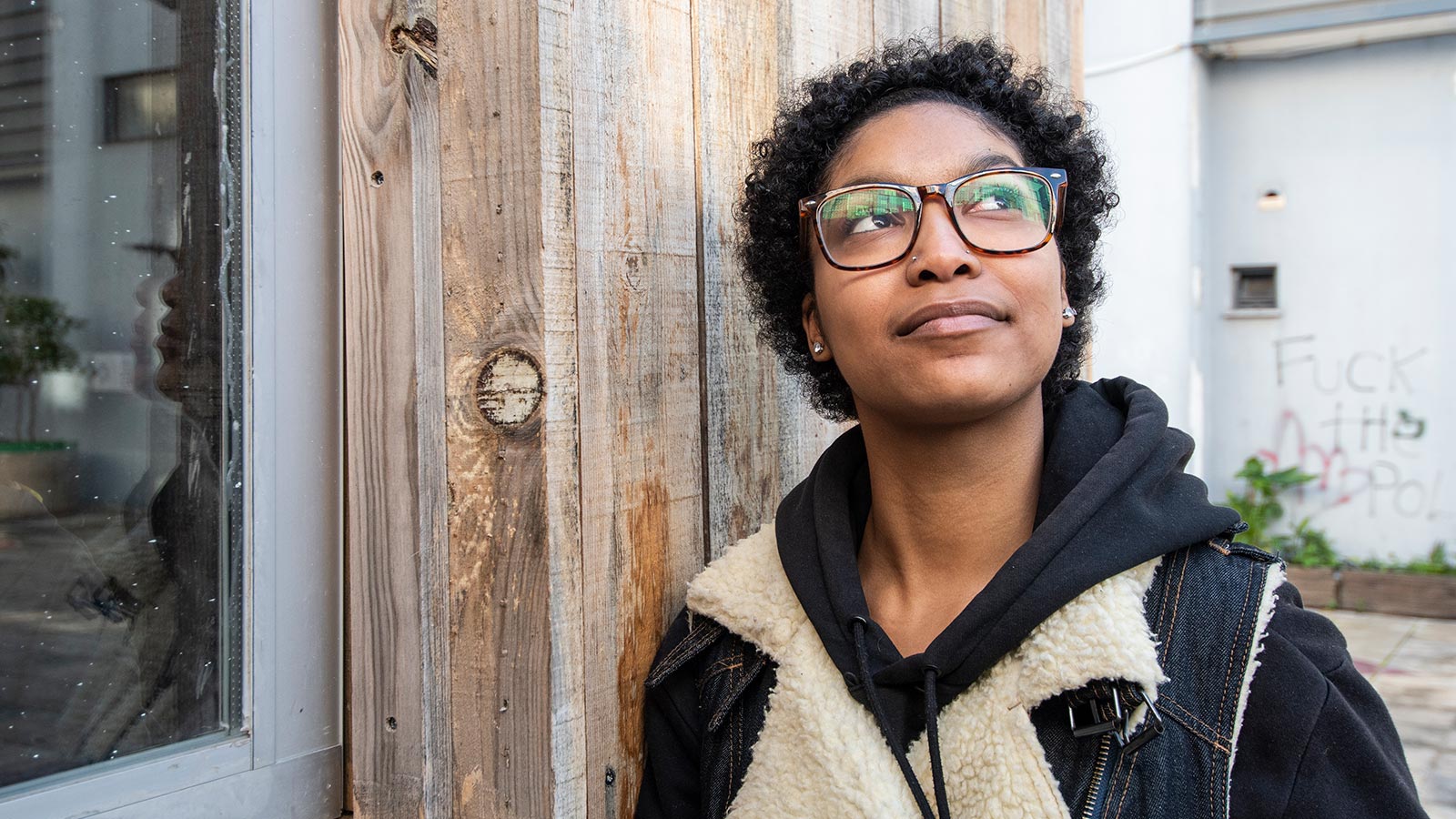
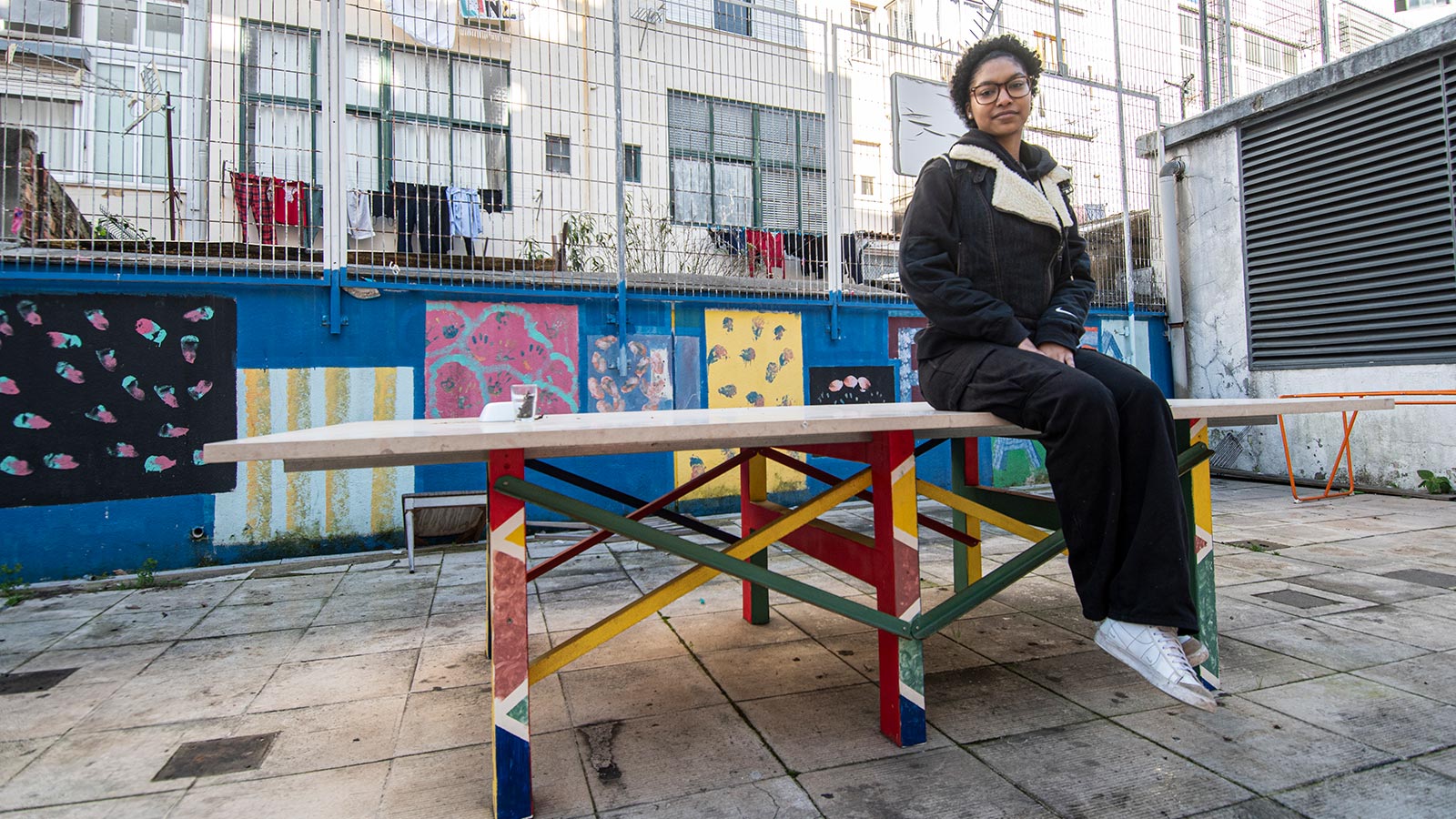
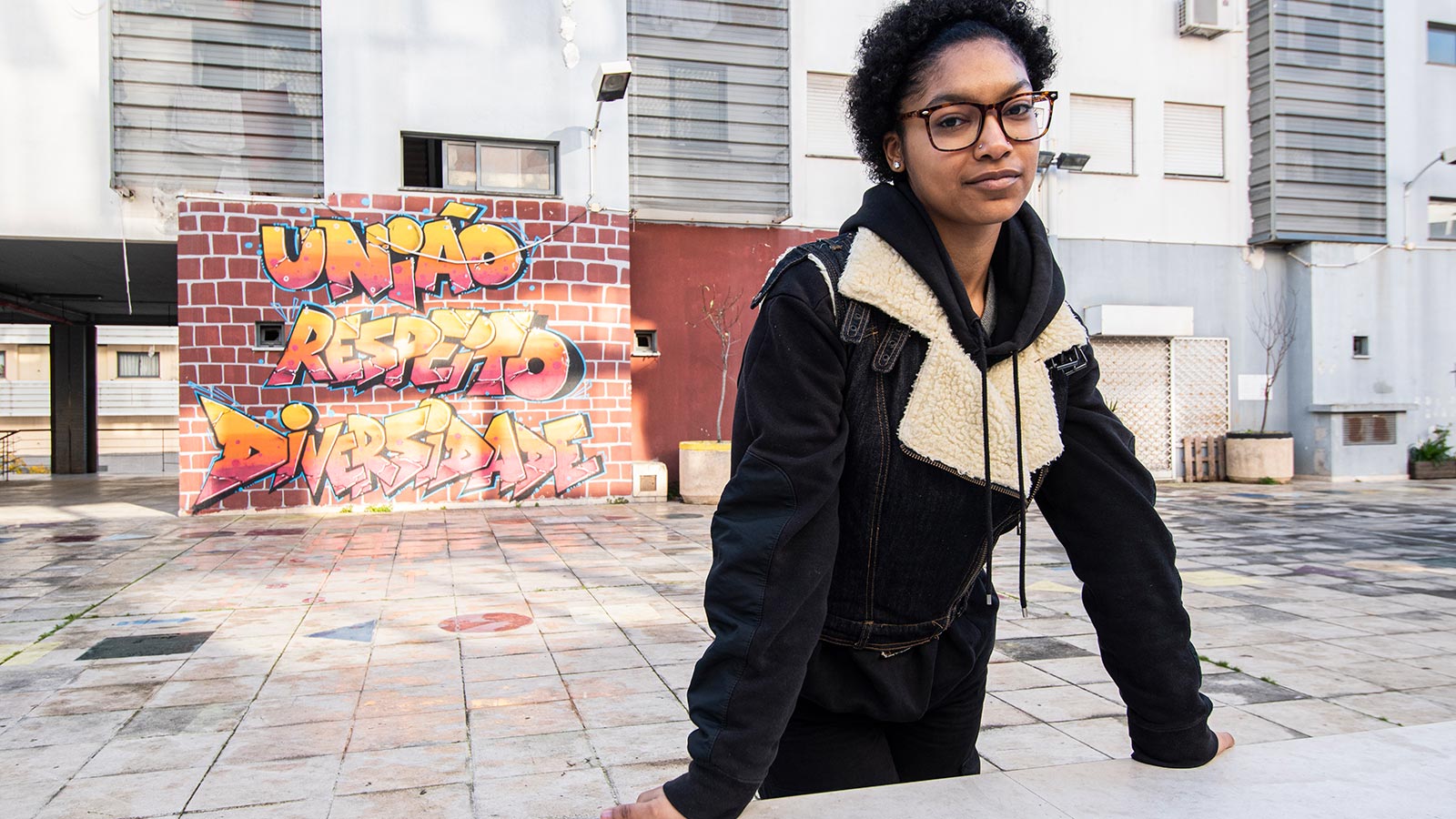
And speaking of sharing… if it were up to Inês, she would extend all this knowledge to the community. And even though she’s working to continue her studies and become an English teacher, she would still be delighted to remain a Neighbourhood Correspondent.
Read the article written by Álvaro Filho and Inês de Sousa and published in A Mensagem de Lisboa: Para toda a Lisboa, sobre duas rodas: eles criaram um quartel-general de entregas no bairro do Rego.
The Neighbourhood Correspondents project, promoted by the Passa Sabi Association in partnership with the publication A Mensagem de Lisboa, is financed by the Active Citizens Fund, a fund managed in Portugal by the Calouste Gulbenkian Foundation and the Bissaya Barreto Foundation.

